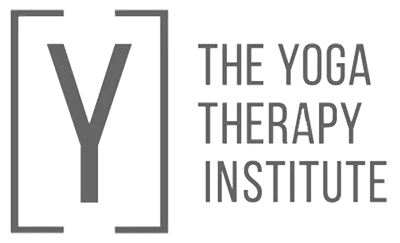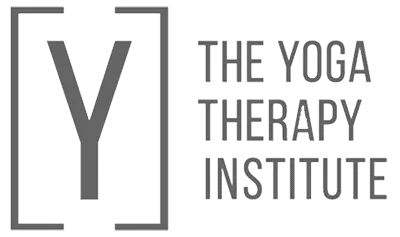
Yoga Therapy is a calling that combines your passion for yoga with a deep desire to help others on their path to physical, mental, and emotional well-being.
Becoming a Yoga Therapist is not about mastering perfect alignment or acquiring academic knowledge. It’s a holistic endeavour that requires dedication, compassion, and a commitment to learning. It’s a journey that invites you to explore the depths of your understanding of yoga as a therapeutic practice and to delve into the intricacies of the human condition.
As you progress on this path, you’ll discover that being a Yoga Therapist is not limited to the confines of a studio or a classroom. It opens doors to a vast array of opportunities, allowing you to positively impact the lives of individuals from all walks of life. Whether you aspire to work in healthcare, education, sports, or holistic wellness, the skills and knowledge you acquire as a Yoga Therapist will empower you to do good wherever you go.
IAYT accreditation and certification
The International Association of Yoga Therapists (IAYT) is a non-profit organisation founded in 1989 to promote and advance Yoga Therapy. It’s the leading organisation in the field, recognised worldwide for its standards and certifications.
IAYT’s accreditation ensures qualified and ethical Yoga Therapists. Their rigorous evaluation process recognises programmes that meet high-quality education standards.
The Yoga Therapy Institute’s 875-Hour Yoga Therapy Diploma, Europe’s very first accredited programme in 2019, was reaccredited for another six years in 2023, reflecting its commitment to providing top-notch education.
To be eligible for IAYT certification, Yoga Therapists must have completed a minimum of 800 hours of training from an IAYT-accredited Yoga Therapy training programme, which must include supervised clinical experience and the passing of an evaluation. IAYT-certified Yoga Therapists are able to use the “C-IAYT” designation after their name, indicating that they’ve received a high-quality education and are qualified to practise Yoga Therapy.
Choosing the right Yoga Therapy training for you
At The Yoga Therapy Institute, we offer two training options to become a certified Yoga Therapist:
1. Yoga Therapy Diploma 875-Hours (IAYT-Accredited)
This comprehensive 875-hour diploma course is designed to prepare you for a career as a professional Yoga Therapist. Upon successful completion of the course, you’ll be eligible to become an IAYT-certified Yoga Therapist.
2. Yoga Therapy Diploma 625-Hours
This intensive 625-hour diploma course is a great option for those who are interested in learning the foundations of Yoga Therapy. The course covers the same core topics as the 875-hour course, but with fewer modules and case studies.
Which training option is right for you?
The best training option for you will depend on your individual goals and needs. If you’re interested in becoming a professional Yoga Therapist with international certification, then the 875-hour diploma is the best choice. If you’re looking to become a certified Yoga Therapist in a shorter timeframe while still receiving high-quality training, the 625-hour diploma is a great option.
Embarking on the path to becoming a Yoga Therapist is an inspiring journey that requires dedication and comprehensive training. If you’re not sure about fully certifying as a Yoga Therapist, you’re more than welcome to join us for one of our Individual Modules or Specialized Training Courses. You can take as many of these trainings as you like, with the option to pursue a diploma at any point!
Timeframe to qualification
Our flexible, self-paced programme enables you to customise your education according to your specific needs and goals. This allows you to finish the training at your own convenience. The entire process, including case study work, takes a minimum of two years to complete for our 875-hour accredited diploma, in accordance with the requirements of the IAYT. However, our 625-hour training can be completed at a faster pace.
Becoming a Yoga Therapist is a profound and rewarding journey, and The Yoga Therapy Institute is dedicated to providing exceptional training, guidance, and support to help you achieve your goal. Feel free to contact us any time and we will be happy to assist you!
How does being a yoga teacher differ from being a Yoga Therapist?
There are some unique distinctions between being a yoga teacher and a Yoga Therapist; two professionals dedicated to enhancing health and well-being through yoga.
- Training and education. While a yoga teacher typically completes a 200-hour training programme, a Yoga Therapist embarks on a more extensive journey. A Yoga Therapist’s training involves specialised programmes lasting up to 1,000 hours. They delve into anatomy, physiology, and Yoga Therapy techniques, acquiring the skills to assess clients’ needs and create personalised treatment plans.
- Scope of practice. Yoga teachers excel in guiding group classes and private sessions, focusing on physical postures and breathwork. In contrast, Yoga Therapists offer individualised attention, addressing specific health concerns. By utilising yoga poses, breathing practices, relaxation techniques, and other tools, they empower clients to manage pain, improve symptoms, and overcome health challenges.
- Collaborations with healthcare professionals. While yoga teachers may not regularly interact with healthcare professionals, Yoga Therapists embrace collaboration. They work alongside doctors, medical specialists, and mental health professionals, forging comprehensive treatment plans that cater to each client’s unique requirements.
- Use of assessment tools. Yoga teachers primarily rely on their expertise and intuition, whereas Yoga Therapists employ assessment tools to track progress and offer tailored recommendations. These tools may include intakes, questionnaires, and physical or breath assessments. Moreover, Yoga Therapists meticulously document clients’ assessments and sessions, ensuring long-term benefit.
- Modifications, variations, and props. Yoga teachers incorporate modifications and props to make poses accessible to students. Conversely, Yoga Therapists possess a unique skill: they skillfully adapt the practices to suit the individual by strategically integrating tailored props and modifications. This personalised approach fosters inclusivity, accessibility and a respect for the individual.
In essence, both yoga teachers and yoga therapists fulfil important roles in promoting health and wellness through yoga. However, the Yoga Therapist’s extensive education and one-on-one approach enable them to address individual health concerns with expertise and compassion, fostering transformative results.
What essential competencies do Yoga Therapists need to possess?
To be effective in their practice, Yoga Therapists must possess a set of essential competencies that encompass a wide range of knowledge and skills. These competencies empower therapists to tailor their approach to meet the unique needs of each client, ensuring safe and effective Yoga Therapy sessions. Key competencies include:
- Yoga Philosophy & History. Blend historical and philosophical knowledge of yoga’s foundations, encompassing diverse schools and traditions. Integrate this understanding with modern insights to address societal needs, promote safe, person-adapted Yoga Therapy practices, and harmonise ancient wisdom with contemporary understanding.
- Practical Anatomy & Physiology. Strong grasp of the intricate workings of the human body, and how Yoga Therapy tools can positively impact someone’s health and well-being.
- Pathophysiology. Knowledge of the causes, effects, and conventional medical treatments of different diseases and conditions, as well as the application of Yoga Therapy tools for managing and alleviating symptoms.
- Assessment & Treatment Planning. Intuitive ability to discern the unique needs of each client, skillfully designing personalised treatment plans that adapt and evolve with their progress over time, empowering them on their health journey.
- Yoga Therapy Modalities. Knowledge of the diverse range of yoga modalities, including asanas (postures), pranayama and breathing techniques, relaxation, and meditation, and their applications within a therapeutic context. Understand their red flags, contraindications, as well as variations and modifications to ensure safe and effective application.
- Safe & Effective Guidance. Skillful art of compassionate and trauma-informed guidance, providing safe and effective Yoga Therapy sessions for clients of all levels, abilities, experiences, and comfort levels.
Body-Mind Observations. Keen eye for the non-verbal physical and psychological cues from their clients. This includes recognising postural imbalances, patterns of movement, areas of tension or discomfort, and emotional states during sessions. - Practicum Experience. Hands-on training through supervised practicum hours, allowing an application of knowledge and skills in real-world settings.
These core competencies form the foundation for a comprehensive and well-rounded education in Yoga Therapy, enabling practitioners to support individuals on their path to improved health and well-being.
What kind of work can I expect to do as a Yoga Therapist?
Yoga Therapy is an incredibly fulfilling and dynamic field, offering a wide range of opportunities to make a positive impact in people’s lives. Some of the most common areas of work for Yoga Therapists include:
- Private practice. Many Yoga Therapists set up their own private practices, where they have the freedom to see clients for individual or group sessions, online or in person.
- Hospitals. The integration of Yoga Therapy in traditional healthcare settings is gaining momentum. Hospitals now recognise the immense value that Yoga Therapists bring in supporting patients through various challenges, including pain management, stress reduction, and post-surgery recovery.
- Healthcare centres. Yoga Therapists can also work in healthcare centres, such as rehabilitation centres, pain clinics, and wellness centres. These environments enable them to engage with individuals seeking guidance and support for their physical and mental well-being.
- Yoga studios. Many Yoga Therapists continue teaching yoga classes in yoga studios. They may also offer private Yoga Therapy sessions to their students, offering safer and more tailored practices than the standard yoga class.
- Physiotherapy centres. Yoga Therapists can work in physiotherapy centres to help patients with rehabilitation from injuries or other conditions.
- Schools. Yoga Therapists can work in schools to help students with stress management, attention deficit hyperactivity disorder (ADHD), and other conditions. By introducing yoga practices into their lives, you can empower young minds and equip them with lifelong tools for self-care and resilience.
- Corporate facilities. Corporate facilities are increasingly recognizing the importance of employee well-being. As a Yoga Therapist, you can play a vital role in these settings by guiding individuals in stress management, preventing burnout, fostering productivity, and promoting a healthy work-life balance.
- Community centres. Yoga Therapists can work in community centres to offer yoga classes and Yoga Therapy sessions to the diverse community.
- Military and veteran facilities. Yoga Therapy can make a profound difference in the lives of service members and veterans. Working in military and veteran facilities, you can assist them in managing stress, recovering from injuries, and addressing mental health challenges. Your compassionate approach will provide a path to healing, allowing these individuals to find strength and resilience in the face of adversity.
In all these varied settings, your work as a Yoga Therapist will be an embodiment of compassion, empathy, and holistic health. Through the integration of a trauma-informed approach, therapeutic yoga techniques, and your deep understanding of the human condition, you will have the privilege of guiding individuals towards improved overall health and well-being.
What is the earning potential in a career as a Yoga Therapist?
The increasing awareness of yoga’s benefits for physical and mental well-being has led to a growing demand for Yoga Therapists. Yoga Therapists can work in a variety of locations and work settings, including private practices, hospitals, and clinics.
The earning potential for Yoga Therapists varies widely, but they can earn a comfortable living. Here are some factors that can affect a Yoga Therapist earning potential:
- Type of clients. Yoga Therapists may work with individuals seeking specialised care, underserved communities, or groups. Working with individuals can be lucrative, while working with underserved communities can be extremely rewarding. On the other hand, leading group sessions has the potential to reach a larger audience and provide affordable care.
- Online or in-person. Although most Yoga Therapists offer in person sessions, working online as a Yoga Therapist can also provide many benefits, such as fewer expenses and travel time, the ability to serve a wider community, and flexibility.
- Full-time or part-time practice. Yoga Therapists who work full-time may earn more than those who work part-time, as they will have more clients and hours.
- Combining Yoga Therapy skills with other qualifications. Yoga Therapy is an incredibly versatile practice that can be combined with other skill sets, like psychotherapy or somatic counselling. This can be a valuable addition to a Yoga Therapist’s toolkit, as it allows them to offer a diversified approach to their clients needs. Additionally, they may be able to work in settings that require additional qualifications, such as hospitals or clinics.
- Strong referral network with other healthcare providers. Yoga Therapists who have a strong referral network with other healthcare providers, such as doctors, physical therapists, and mental health professionals, may be able to earn more referrals and ultimately more income.
The field of Yoga Therapy is growing rapidly. The employment for fitness trainers and aerobics instructors, which includes Yoga Therapists, is projected to grow 19% between 2021 and 2031. This growth is being driven by the increasing popularity of yoga and other complementary and alternative medicine therapies.
If you are passionate about yoga and helping others, a career in Yoga Therapy may be a great fit for you. With its growing demand and bright future, Yoga Therapy is a rewarding and fulfilling career path.









